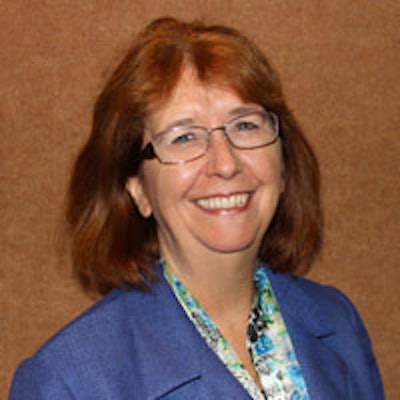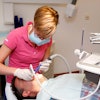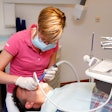
The California Dental Hygienists' Association (CDHA) drastically reduced membership dues and saw a jump in new members after the group voted to end its 90-year affiliation with the American Dental Hygienists' Association (ADHA).
The CDHA's House of Delegates overwhelmingly voted 140-14 to secede from the ADHA, during the group's meeting June 4 in Fresno, CA.
Jump in membership
The decision to end its affiliation with the ADHA spurred a big increase in new members, Lygia Jolley, RDH, immediate past president of the CDHA, told DrBicuspid.com.
"We already have nonmembers asking to join CDHA," Jolley said. "We've started taking applications, and people at the meeting were signing up. That was a factor [in the decision to secede]. We really felt we could finally increase our membership in California."
Keeping members' dues in California
Another motive for leaving the ADHA was keeping members' dues in California, Jolley said.
Previously, California members paid $350 in annual dues, with more than half (54% or $190) going to the ADHA. The CDHA has already reduced dues to $210 per year.
"For our members, it is a lack of trust and 'what they're doing with our money,' " Jolley said. "The general feeling I got at the meeting was members did not want the national organization dictating to them how to run things here in California."
2 competing organizations
The CDHA will now be an independent group, and it added a new logo to its website with the words "Transitioning to a New Future."
 Julie Coan, RDH, president of the CDHA.
Julie Coan, RDH, president of the CDHA."I was really impressed, although not necessarily surprised, at how overwhelming the vote was," CDHA President Julie Coan, RDH, told DrBicuspid.com. "It wasn't an easy decision, but we worked really hard and spent a lot of time investigating and researching in coming to this decision."
The ADHA expressed disappointment at the decision.
"We are disappointed by this development and are committed to ensuring California dental hygienists continue to have a voice through their national association and to be supported in their professional development throughout their careers," the group said in a statement to DrBicuspid.com.
The ADHA said it is "exploring" chartering a new California constituent group, adding that active CDHA members will remain members of the national organization.
"We continue to believe in our tripartite structure and the strength within the local, state, and national organization," the statement said.
Key issues: Money and control
One of the key issues involved in CDHA's decision to leave the ADHA was a revocation clause in the proposed charter agreement, which would have required CDHA to turn over all of its assets to the ADHA if the national group terminated the affiliation, Coan said.
Another concern in the new agreement was a two-year noncompete clause forbidding member groups such as the CDHA from forming their own organization.
"That was one of our biggest concerns, because the revocation clause would allow them to come in and take all of our assets," Coan noted. "Also, the noncompete clause would not have allowed us to start up a new organization for two years. I really believe it was a business decision that's the best for CDHA's future."
“The revocation clause was definitely a concern, because we want to keep California funds here.”
Coan noted that the CDHA wasn't revoked by the ADHA from the existing agreement; the California group terminated it. In other words, the CDHA wasn't fired by the ADHA, the group quit.
"CDHA's current bylaws have nothing that states, that should we either be revoked or should we terminate any relationship, that ADHA would be eligible to take our assets," Coan said. "The revocation clause was definitely a concern, because we want to keep California funds here; we have a lot to do here."
Coan didn't dismiss the possibility that the ADHA would take the matter to court.
"The CDHA is preparing for possibility that the ADHA could start litigation, but I hope it doesn't happen," she said. "Even though we have separated, we would still really like to maintain a positive relationship with the ADHA."
Distrust of ADHA
The CDHA tried to negotiate its concerns with ADHA's leadership at the meeting, but Jolley said ADHA officials could not commit to anything.
"They said we could participate in a work group to discuss the issues, but there were no guarantees it would be approved by their board," Jolley recalled. "We said, 'How long is this work group going to take?' But there was nothing in writing or promised, and that's what affected the vote."
Both Coan and Jolley expressed hope that both organizations can cooperate in the future. Jolley noted that the ADHA was started in San Francisco 90 years ago by members of the CDHA.
"As the new CDHA president, I really would like to continue the discussion with the ADHA to develop a good relationship with them," Coan said. "I don't know what the future will bring, but we really feel good about it and feel positive about great things ahead."


















